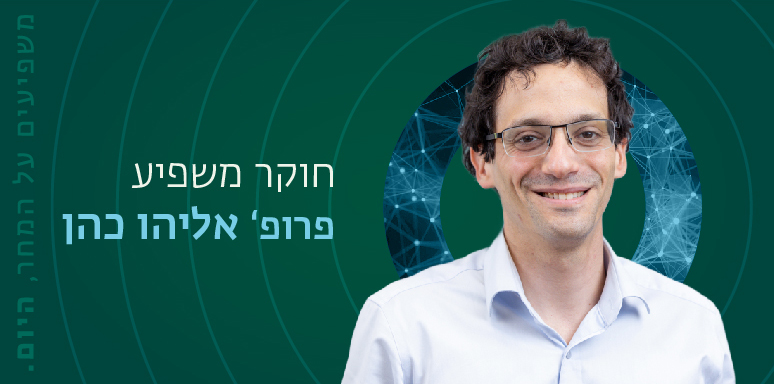Prof. Eli Cohen Wins the EU’s Horizon RIA Grant

The research group will work on a project in computational social sciences and will examine quantum models for voting in elections
Prof. Eli Cohen’s research group recently won the prestigious Horizon RIA (Research and Innovation Action) grant. Collaborating with several European partners and U.S. advisors, the group will develop algorithms in the field of computational social science. “The operation is headed by the Director of the European Institute of Science in Management, Barcelona. He contacted me over a year ago because he took an interest in our approach to quantum mechanics, which we have been using for several years. He wanted to employ it in other areas outside physics,” shares Prof. Cohen. “This project by the EU was the perfect match for our goals, because it aimed to bring powerful computation tools from the world of engineering and exact sciences to the world of social science.”
The group’s project examines alternative models for voting in municipal elections, parliament, and even the democratic system as a whole. “We have been using different variations of the same model for hundreds of years, but there are other models we can come up with that add a simple expansion to it. For example, a model where every person has more than one vote which can be shared between several candidates or parties; or a model where voting power is not fixed and changes according to different parameters. There are other nuances that can be quantitatively explored, for instance holding several rounds of elections, or whether a candidate who won by a tenth of a percent is necessarily the winner. The project will explore all of these options and more, using tools of multi-agent simulations and deep learning, classical analytic models, and models based on quantum theory. This last part is where my group comes in: we want to test whether quantum computers can be used to perform more effective and efficient voting, taking into consideration several parameters, including protecting voter privacy and employing other mechanisms against fraud and obstruction.”
“In the first stage,” says Prof. Cohen, “the team will examine the quantum voting model from a theoretical perspective, using measurements of entangled quantum states. In the next stage, we will expand the model, develop additional ones, and compare them to discover which ones meet the principles that make a voting model good. We will test these models not only using classic computer simulations, but also using remote quantum computers. In the third stage of the research we will test our models in two cities, Bern in Switzerland, and Aarhus in Denmark. That is where the consortium name, European City2, comes from. Our end goal is to have cities and even countries use the models that our group has tested and found to be optimal.”
Why is this even needed? There is a common theorem in social sciences, stating that any priority-based decision-making model cannot behave coherently or rationally. Classical decision-making models will necessarily violate the principle of independence of irrelevant alternatives. You would expect an election model to show that the choice between option A and option B is independent of option C – but it is not. Mathematically speaking, it has been proven that it cannot be independent. However, several years ago it was shown that quantum decision making models overcome this constraint, known as Arrow’s impossibility theorem. As a rule, quantum theory can settle contradicting possibilities thanks to the principles of superposition and uncertainty. Additionally, quantum theory allows for strong correlation between remote particles, which allows for new opportunities during the prioritization process. That’s the beauty of quantum theory: its principles often allow us to succeed in tasks that are impossible in the classical world. In previous studies, my group analyzed quantum games and showed that quantum players have a clear advantage over classical players, because they can harness resources that classical players cannot. This gives us hope that here too we can innovate the world of decision theory.”
The research is set to start in October, and would take three years to complete. Prof. Cohen was allotted more than 300,000 Euros for the project. He is now seeking graduate and post-doctoral students with a background in quantum computing or physics to join his research group. You can browse previous projects here
Contact Prof. Cohen: eliahu.cohen@biu.ac.il
Last Updated Date : 26/08/2024



